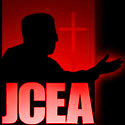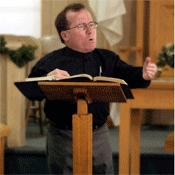How A Charlie Brown Christmas almost didn’t happen
 Few headlines about network television make me giddy. Fewer still make me hopeful that all is good in the world. But back in August of 2010, I read the following headline from the media pages with great excitement: “Charlie Brown Is Here to Stay: ABC Picks Up ‘Peanuts’ Specials Through 2015.” The first of these to be made, the famous Christmas special, was an instant classic when it was created by Charles Schulz on a shoestring budget back in 1965, and thanks to some smart television executives, it will be around for at least another five years for all of us to see and enjoy.
Few headlines about network television make me giddy. Fewer still make me hopeful that all is good in the world. But back in August of 2010, I read the following headline from the media pages with great excitement: “Charlie Brown Is Here to Stay: ABC Picks Up ‘Peanuts’ Specials Through 2015.” The first of these to be made, the famous Christmas special, was an instant classic when it was created by Charles Schulz on a shoestring budget back in 1965, and thanks to some smart television executives, it will be around for at least another five years for all of us to see and enjoy.
What people don’t know is that the Christmas special almost didn’t happen, because some not-so-smart television executives almost didn’t let it air. You see, Charles Schulz had some ideas that challenged the way of thinking of those executives 46 years ago, and one of them had to do with the inclusion in his Christmas cartoon of a reading from the King James Bible’s version of the Gospel of Luke.
The more things change, the more things stay the same.
As far back as 1965 — just a few years before Time magazine asked “Is God Dead?” — CBS executives thought a Bible reading might turn off a nation populated with Christians. And during a Christmas special, no less! Ah, the perils of living on an island in the northeast called Manhattan.
“A Charlie Brown Christmas” was a groundbreaking program in so many ways, as we learned watching the great PBS American Masters series on Charles Schulz, known by his friends and colleagues as “Sparky.” It was based on the comic strip Peanuts, and was produced and directed by former Warner Brothers animator Bill Melendez, who also supplied the voice for Snoopy.
We learned in that PBS special that the cartoon happened by mere serendipity.
“We got a call from Coca-Cola,” remembered Melendez. “And they said, ‘Have you and Mr. Schulz ever considered doing a Christmas show with the characters?’ and I immediately said ‘Yes.’ And it was Wednesday and they said, ‘If you can send us an outline by Monday, we might be interested in it.’ So I called Sparky on the phone and told him I’d just sold ‘A Charlie Brown Christmas,’ and he said, ‘What’s that?’ and I said, ‘It’s something you’ve got to write tomorrow.’”
We learned in that American Masters series that Schulz had some ideas of his own for the Christmas special, ideas that didn’t make the network suits very happy. First and foremost, there was no laugh track, something unimaginable in that era of television. Schulz thought that the audience should be able to enjoy the show at its own pace, without being cued when to laugh. CBS created a version of the show with a laugh track added, just in case Schulz changed his mind. Luckily, he didn’t.
The second big battle was waged over voiceovers. The network executives were not happy that the Schulz’s team had chosen to use children to do the
voice acting, rather than employing adults. Indeed, in this remarkable world created by Charles Schulz, we never hear the voice of an adult.
The executives also had a problem with the jazz soundtrack
by Vince Guaraldi
. They thought the music would not work well for a children’s program, and that it distracted from the general tone. They wanted something more . . . well . . . young.
Last but not least, the executives did not want to have Linus reciting the story of the birth of Christ from the Gospel of Luke.
The network orthodoxy of the time assumed that viewers would not want to sit through passages of the King James Bible.
There was a standoff of sorts, but Schulz did not back down, and because of the tight production schedule and CBS’s prior promotion, the network executives aired the special as Schulz intended it. But they were certain they had a flop on their hands.
“They were freaking out about something so overtly religious in a Christmas special,” explained Melendez. “They basically wrote it off, like, hey, this is just isn’t going to be interesting to anyone, and it’s just going to be like a big tax write-off.”
Melendez himself was somewhat hesitant about the reading from Luke. “I was leery of the religion that came into it, and I was right away opposed to it. But Sparky just assumed what he had to say was important to somebody.”
Which is why Charles Schulz was Charles Schulz. He knew that the Luke reading by Linus was the heart and soul of the story.
As Charlie Brown sinks into a state of despair trying to find the true meaning of Christmas, Linus quietly saves the day. He walks to center of the stage where the
Peanuts characters have gathered, and under a narrow spotlight, quotes the second chapter of the Gospel According to Luke, verses 8 through 14:
And there were in the same country shepherds abiding in the field, keeping watch over their flock by night. And, lo, the angel of the Lord came upon them, and the glory of the Lord shone round about them: and they were sore afraid. And the angel said unto them, Fear not: for, behold, I bring you tidings of great joy, which shall be to all people. For unto you is born this day in the city of David a Savior, which is Christ the Lord. And this shall be a sign unto you; Ye shall find the babe wrapped in swaddling clothes, lying in a manger. And suddenly there was with the angel a multitude of the heavenly host praising God, and saying, Glory to God in the highest, and on earth peace and goodwill towards men.
“ . . . And that’s what Christmas is all about, Charlie Brown,” Linus concluded.
The scene lasted 51 seconds. When Linus finished up, Charlie Brown realized he did not have to let commercialism ruin his Christmas. With a sense of inspiration and purpose, he picked up his fragile tree and walked out of the auditorium, intending to take it home to decorate and show all who cared to see how it would work in the school play.
When CBS executives saw the final product, they were horrified. They believed the special would be a complete flop. CBS programmers were equally pessimistic, informing the production team, “We will, of course, air it next week, but I’m afraid we won’t be ordering any more.”
The half-hour special aired on Thursday, December 9, 1965, preempting
The Munsters and following
Gilligan’s Island. To the surprise of the executives, 50 percent of the televisions in the United States tuned in to the first broadcast. The cartoon was a critical and commercial hit; it won an Emmy and a Peabody award.
Linus’s recitation was hailed by critic Harriet Van Horne of the
New York World-Telegram, who wrote, “Linus’ reading of the story of the Nativity was, quite simply, the dramatic highlight of the season.”
A Charlie Brown Christmas is equaled only perhaps by the 1966
How the Grinch Stole Christmas! in its popularity among young and old alike. Thank God the Grinch-like executives at CBS chose to air the special back in 1965 despite their misgivings. If it had been left to their gut instincts, we would have had one less national treasure to cherish come Christmas time.
— Lee Habeeb is the vice president of content at Salem Radio Network, which syndicates Bill Bennett, Mike Gallagher, Dennis Prager, Michael Medved, and Hugh Hewitt. He lives in Oxford, Miss., with his wife, Valerie, and daughter Reagan.
 This time of year, the non-profit status of James Croft Evangelistic Association lets your generosity help you and our ministry at the same time. By giving before the end of the calendar year, you may enjoy the ability to deduct your gifts in income tax calculations for 2011. You can help our Gospel ministry at the same time!
This time of year, the non-profit status of James Croft Evangelistic Association lets your generosity help you and our ministry at the same time. By giving before the end of the calendar year, you may enjoy the ability to deduct your gifts in income tax calculations for 2011. You can help our Gospel ministry at the same time!














































